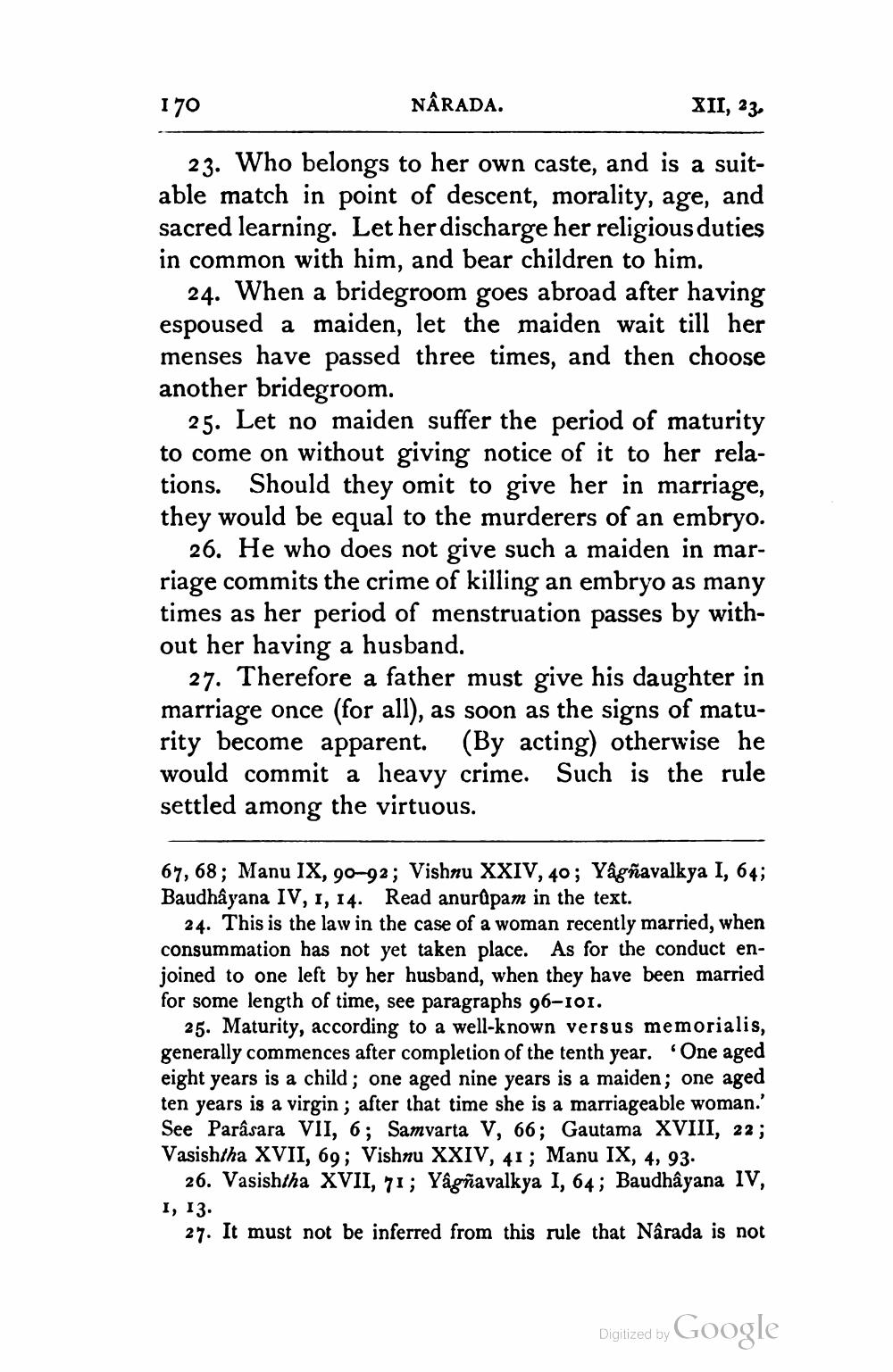________________
170
NÂRADA.
XII, 23.
23. Who belongs to her own caste, and is a suitable match in point of descent, morality, age, and sacred learning. Let her discharge her religious duties in common with him, and bear children to him.
24. When a bridegroom goes abroad after having espoused a maiden, let the maiden wait till her menses have passed three times, and then choose another bridegroom.
25. Let no maiden suffer the period of maturity to come on without giving notice of it to her relations. Should they omit to give her in marriage, they would be equal to the murderers of an embryo.
26. He who does not give such a maiden in marriage commits the crime of killing an embryo as many times as her period of menstruation passes by without her having a husband.
27. Therefore a father must give his daughter in marriage once (for all), as soon as the signs of maturity become apparent. (By acting) otherwise he would commit a heavy crime. Such is the rule settled among the virtuous.
67, 68; Manu IX, 90-92; Vishnu XXIV, 40; Yâgñavalkya I, 64; Baudhayana IV, 1, 14. Read anurūpam in the text.
24. This is the law in the case of a woman recently married, when consummation has not yet taken place. As for the conduct enjoined to one left by her husband, when they have been married for some length of time, see paragraphs 96-101.
25. Maturity, according to a well-known versus memorialis, generally commences after completion of the tenth year. One aged eight years is a child; one aged nine years is a maiden; one aged ten years is a virgin ; after that time she is a marriageable woman.' See Parâsara VII, 6; Samvarta V, 66; Gautama XVIII, 22; Vasishtha XVII, 69; Vishnu XXIV, 41; Manu IX, 4, 93.
26. Vasishtha XVII, 71; Yâgñavalkya I, 64; Baudhâyana IV, I, 13.
27. It must not be inferred from this rule that Narada is not
Digitized by Google




